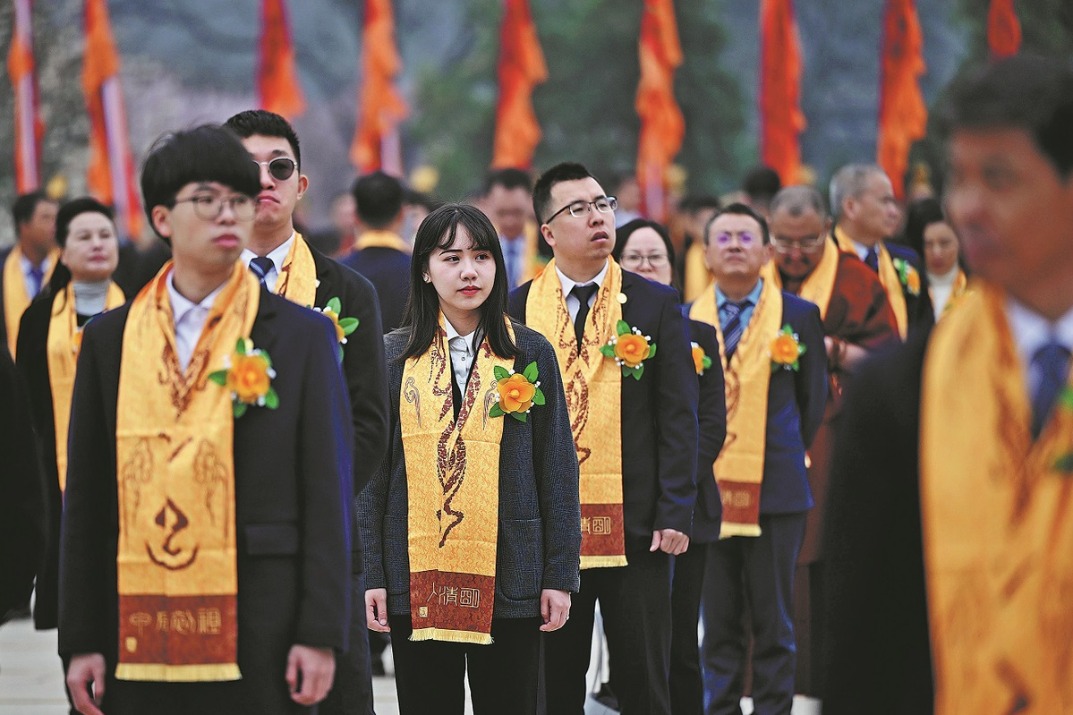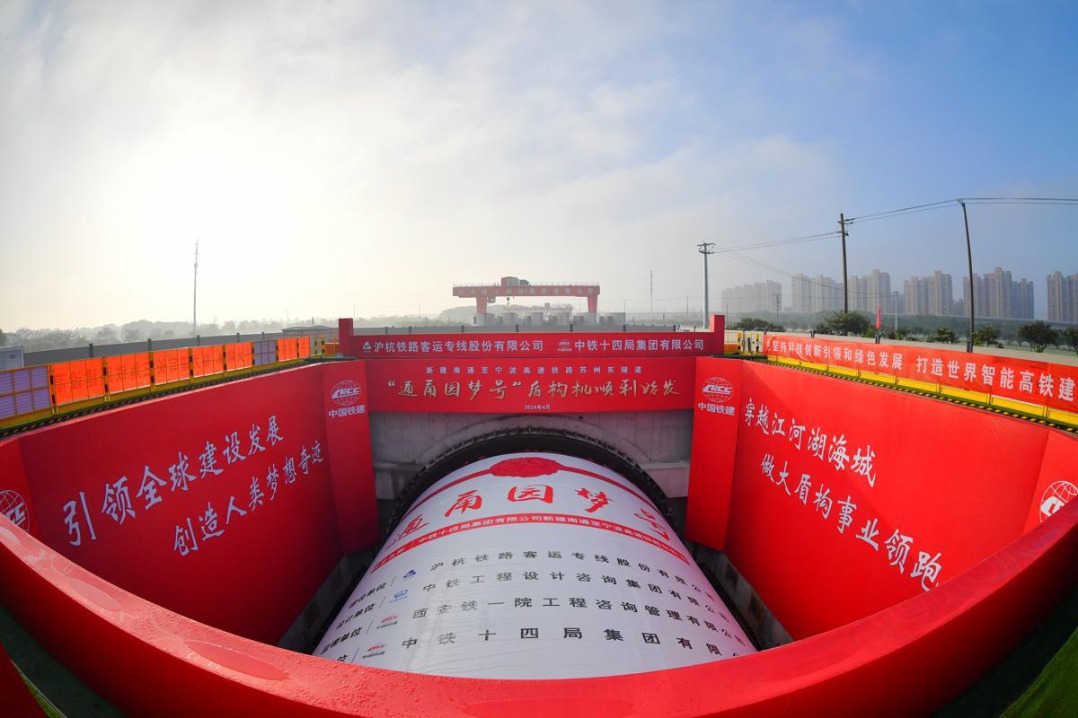Rural students see gap, don't like it


Livestream classes are a window through which rural children not only learn the subject matter of a class but also see the differences in their lifestyle compared with students in urban areas, according to teachers and students.
Lessons in various subjects at Chengdu No 7 High School in Sichuan province are broadcast daily via an interactive feed to schools across remote areas of Yunnan province.
One of those schools is located in poverty-stricken Luquan Yi and Miao autonomous county. So it was convenient for faculty members and students from the county's No 1 High School and Minzu High School to visit and observe firsthand the urban-rural gap - both in educational resources and mindset.
Wu Fei, vice-principal of Luquan No 1 High School, said that in one class students were asked to list common modes of transportation. Students from Chengdu talked about bullet trains, airplanes and cruise ships, but those in the rural school thought only of bicycles, motorbikes and buses.
Wang Yihan, a first-year student at Luquan No 1 High School, complained that the livestreamed English class was taught entirely in English with no explanations in Chinese. But those in Chengdu "read English newspapers, listen to TED talks and have teachers who are native speakers".
"I couldn't understand anything that was being taught. I felt useless," she said.
Wu said many of the students are overwhelmed by a sense of inferiority while watching students thousands of miles away talk about their experiences traveling abroad. But the self-doubt subsides, and they adapt, he said.
"Usually in the second year, we see minor progress in exams. But in the final year, their academic performance is greatly improved," he said.
Zeng Kaihui, 19, one of the top scorers in the gaokao - the national entrance exam - in the Guangxi Zhuang autonomous region, also attended livestreamed classes at his high school in remote Baise city. In September, he was admitted to Tsinghua University, where he majors in electronic engineering.
"The livestream classes made me realize the distance between myself and the students in Chengdu. I used to be one of the best students in my school, but compared with them I was nothing," he said.
That realization inspired him to work harder during his final three years of high school, and his grades steadily improved, even surpassing those of students in Chengdu.
Zhao Jiahua, president of Luquan Minzu High School, said the feeling of inferiority has really motivated the teachers and students in Luquan to work and study hard at every possible moment.
To make sure students keep up with their Chengdu counterparts, teachers in Luquan prepare teaching materials, give students instructions during class breaks and answer questions or even teach the classes again in the evening, Zhao said.
The workload for teachers in livestreamed classes is twice or even three times that of teachers in ordinary classes, he said, adding that students also work day and night, with some getting up at 6 am and studying until 1 am.
Wang Kaifu, head of the county's education bureau, said: "I don't think our students are less intelligent than students in Chengdu. All that separates them is the lack of good educational resources, especially good teachers."
- China renews yellow alert for rainstorms
- Changsha's rise as a favorite for Hong Kong explorers
- Mainland says flight route adjustment benefits both sides of Taiwan Strait
- Taicang to establish Sino-German education park
- Drilling begins on 15.5 km high-speed railway tunnel
- Shenzhou XVI crew members given honors




































